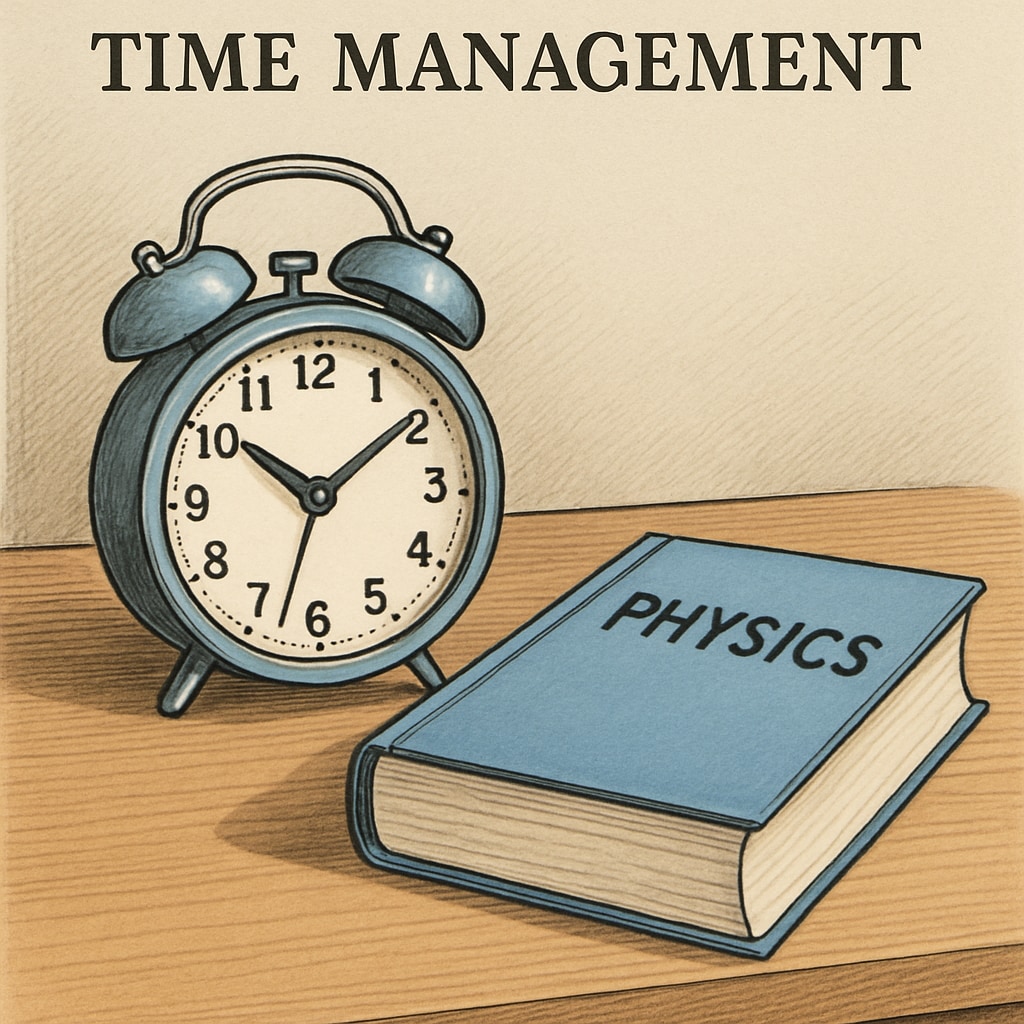Managing physics backlogs, time management, study strategy can be daunting, especially for students juggling multiple subjects and personal obligations. Physics, with its complex concepts and mathematical rigor, often requires focused effort and structured planning to make progress. This article outlines actionable strategies to help students clear their backlogs efficiently and regain control over their learning journey.
Understanding the Challenge of Physics Backlogs
Physics backlogs often accumulate due to missed classes, insufficient practice, or other time demands. Tackling these challenges requires a clear understanding of the scope of the backlog, identifying priority areas, and adopting consistent strategies. For example, if foundational topics such as Newton’s Laws or electromagnetism are weak, addressing these should precede complex topics like quantum mechanics.

Time Management Techniques for Clearing Backlogs
Effective time management is a cornerstone of academic success. Start by evaluating available time and dividing it into manageable chunks dedicated to physics study. Consider using the following techniques:
- Prioritize topics: Focus on high-impact areas that influence overall understanding, such as mechanics or thermodynamics.
- Time-blocking: Assign specific periods for physics study in your daily schedule and stick to them.
- Pomodoro Technique: Break study sessions into 25-minute intervals with short breaks to maximize focus.
In addition, avoid multitasking during study time. Concentrating on physics exclusively ensures better retention and understanding.

Study Strategies to Tackle Complex Physics Concepts
Understanding physics can be challenging without the right approach. Here are some study strategies tailored for clearing backlogs:
- Active recall: Regularly quiz yourself on key concepts to strengthen memory and comprehension.
- Chunking: Break down complex topics into smaller, digestible parts to make learning manageable.
- Visualization: Use diagrams and mind maps to understand relationships between concepts.
- Collaborative learning: Join study groups or seek help from peers to clarify doubts and gain insights.
Additionally, leveraging online resources such as Wikipedia on Physics and Britannica’s Physics Overview can provide supplementary explanations and examples.
Maintaining Motivation and Managing Stress
Clearing physics backlogs under time constraints can be stressful, but maintaining motivation is essential. Here are tips for staying motivated:
- Set realistic goals: Break your backlog into achievable milestones to avoid feeling overwhelmed.
- Track progress: Celebrate small wins to boost confidence and keep momentum.
- Take breaks: Ensure regular physical and mental breaks to avoid burnout.
Remember, persistence is key. Even small daily efforts can lead to significant progress over time.
Readability guidance: Use concise paragraphs, lists to summarize key points, and ensure over 30% of sentences include transitional words for smooth flow. Emphasize active learning techniques and maintain a balance between practical advice and motivational guidance.


